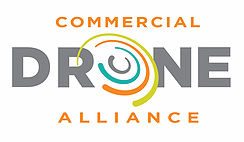 Drone security is a critical topic in the commercial drone industry. As FAA Reauthorization packages come up for discussion in Congress this month, the Commercial Drone Alliance has published their suggested guidelines for drone security legislation.
Drone security is a critical topic in the commercial drone industry. As FAA Reauthorization packages come up for discussion in Congress this month, the Commercial Drone Alliance has published their suggested guidelines for drone security legislation.
The Commercial Drone Alliance is a non-profit industry group focused on education and advocacy. Co-directed by industry leaders Gretchen West and Lisa Ellman of Hogan Lovells, members include large enterprise players like Project Wing (X, part of the Google family,) CNN/Time Warner and Ford Motor Company.
The paper offers a thorough overview of the issues involved in drone security. Drone security has the potential to significantly impact every drone operator, from recreational to small commercial pilots and large enterprise customers: stakeholders agree that careful legislation is critical to drone industry growth. The Alliance’s published suggestions are the result of the group’s recently hosted Domestic Drone Security summit, which brought policymakers and industry together to collaborate and build understanding between stakeholders.
The statement begins by saying that while the drone market is expanding rapidly, “the policymaking around drone use has lagged behind technology.”
The paper’s major points suggest:
- Any Drone Security Legislation Must be Narrowly Tailored. The Alliance points out that regulation that is too broad is potentially limiting. “It should enable law enforcement to mitigate or confront drone threats but avoid unintended consequences that may restrict innovation, adversely affect authorized commercial drone flights, threaten privacy, civil rights, or civil liberties, or otherwise cause harm,” says the Alliance.
- Enable Technology Solutions to Policy Problems: “We should seek to implement UTM [Unmanned Traffic Management] in a timely manner, and the federal government must adopt further enabling regulations with UTM in mind. Moreover, as noted above, the federal government must diligently work to legally enable counter-drone technology solutions in an appropriately tailored way, which will necessitate changes in law and policy.”
- Require Hobbyists to Register Their Drones. Despite the recent ruling that FAA drone registration was unlawful, the Commercial Drone Alliance suggests that it be reinstated to allow for education of new operators.
- Establishment of Remote UAS ID and Tracking Requirement. “The Alliance believes that establishing a comprehensive remote UAS identification and tracking system is a critical step to enable the ongoing and timely expansion of authorized commercial drone operations,” says the statement. “A Remote UAS ID and Tracking system is a common-sense step forward…” Remote tracking is a big topic, and the paper outlines a framework: including a capability-based tiered approach, a “limited carve-out” for hobbyists and model aircraft to ensure that recreational flyers are not required to comply with the same level of requirements as commercial pilots, and shared responsiblity for drone operators and drone manufacturers.
- Flexible Implementation: “Any new rule should be based on performance-based standards, rather than prescriptive regulatory mandates…the Alliance supports a technology-neutral and interoperable approach compatible with any number of broadcast, network, software, or ADS-B systems.”
- Data Privacy and Government. “While it is critical that law enforcement has access to data when necessary, it is also critical that this authority remains appropriately tailored…,” says the Alliance.
- Trusted Operator System. “It is very important that authorized commercial operators have the opportunity to proactively gain the trust of public officials and the general public. Any new rule should include a trusted operator system similar in concept to the TSA Pre✓system where safe and responsible operators can voluntarily provide additional details about their organization and UAS operations to be vetted and evaluated.”
Proposals dealing with drone security issues have sometimes threatened to place significant administrative burden on commercial operators, and opinions vary on the best ways to legislate. Every stakeholder in the industry should understand the issues: for more information on the paper, see commercialdronealliance.org.

Miriam McNabb is the Editor-in-Chief of DRONELIFE and CEO of JobForDrones, a professional drone services marketplace, and a fascinated observer of the emerging drone industry and the regulatory environment for drones. Miriam has penned over 3,000 articles focused on the commercial drone space and is an international speaker and recognized figure in the industry. Miriam has a degree from the University of Chicago and over 20 years of experience in high tech sales and marketing for new technologies.
For drone industry consulting or writing, Email Miriam.
TWITTER:@spaldingbarker
Subscribe to DroneLife here.







[…] Source link […]